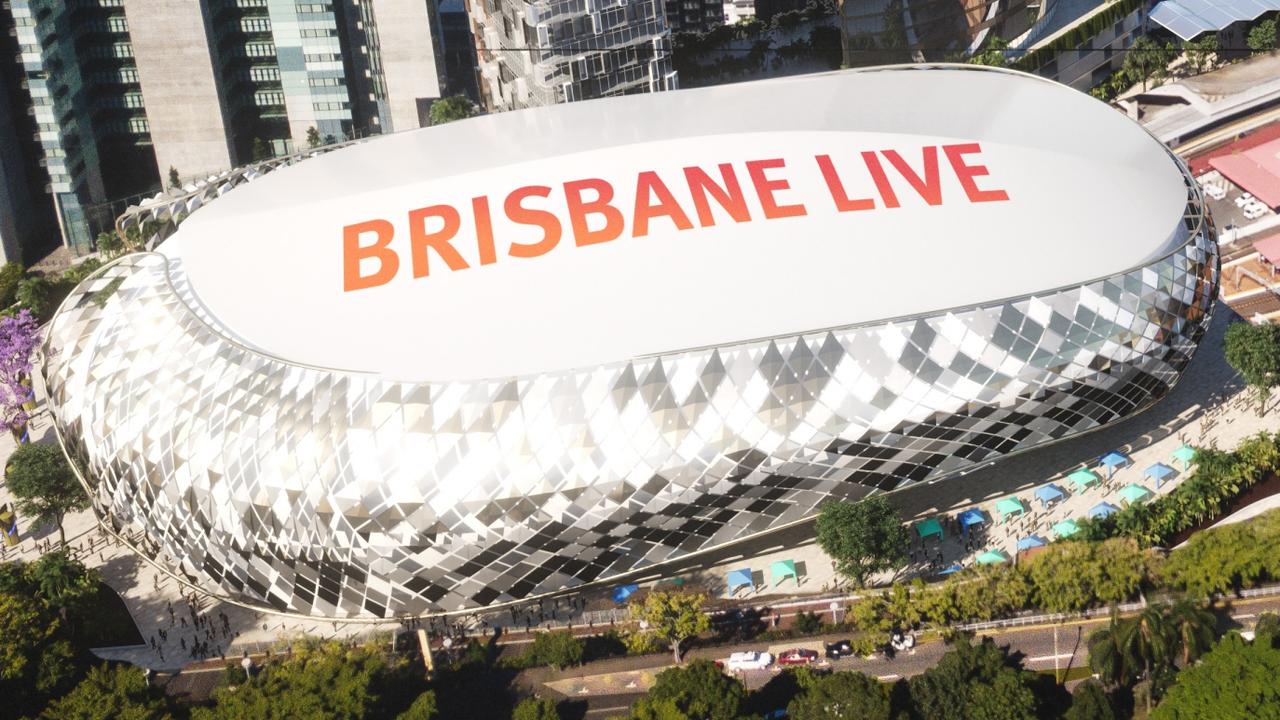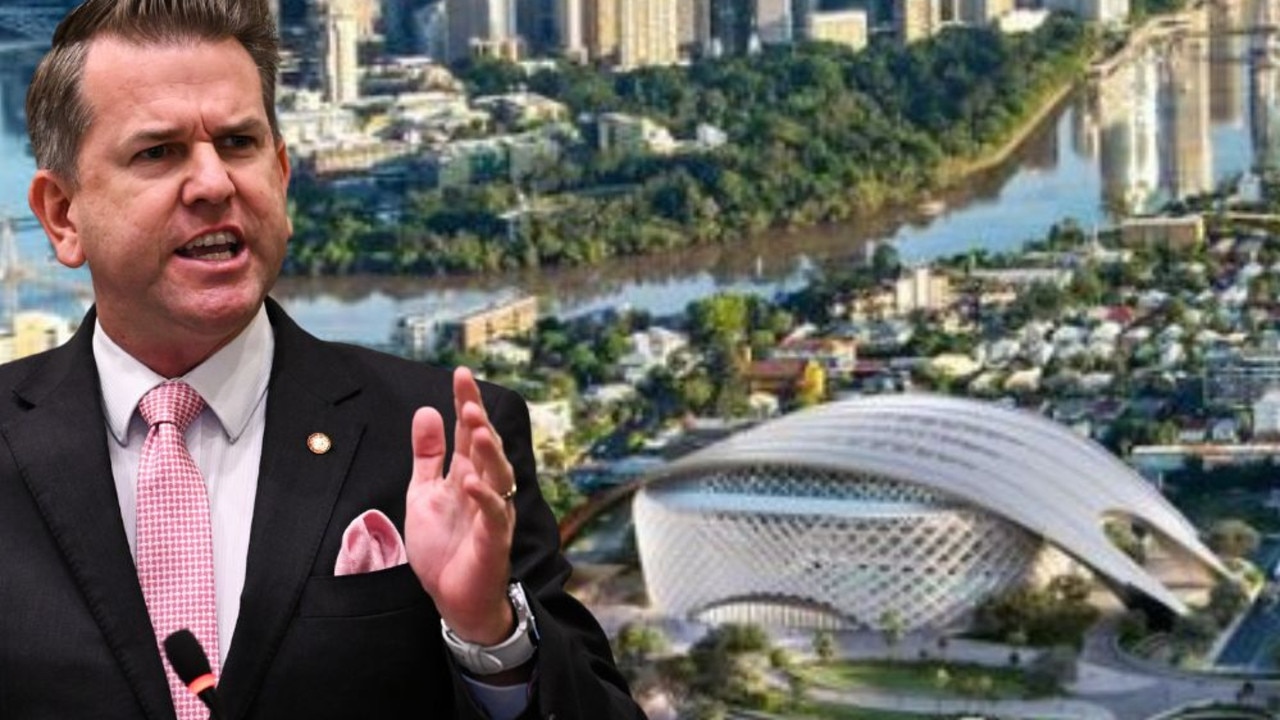New Cross River Rail trains year too late for 2025 opening date
The Palaszczuk government is adamant there will be enough trains to open the $7.1bn Cross River Rail project in 2025 despite extensive delays.
Future QLD
Don't miss out on the headlines from Future QLD. Followed categories will be added to My News.
The first of dozens of “Cross River Rail trains” set to be manufactured in Maryborough will begin rolling off the assembly line in 2026 – a year after the major rail project is due to open.
Premier Annastacia Palaszczuk, in Maryborough on Monday for a regional meeting of cabinet, announced Downer had been selected as the “preferred supplier” of a $7.1bn train manufacturing project.
It includes the manufacturing of 65 six-car trains at a state-owned facility in Torbanlea that will need to be built, with the program supporting 800 jobs in the region.
But the government, which once said the new trains were “needed to support” an increase in services for Cross River Rail, is adamant the trains won’t prevent the new line from starting or ramping up.
Transport Minister Mark Bailey on Tuesday said there will “absolutely” be enough passenger trains to open the mega project in 2025.
“They (the new trains now due in 2026) are not needed for the opening of the Cross River Rail tunnels … we have enough trains to open the tunnels,” he said.
“Absolutely, these trains are not necessary for the opening of the Cross River Rail tunnels.”
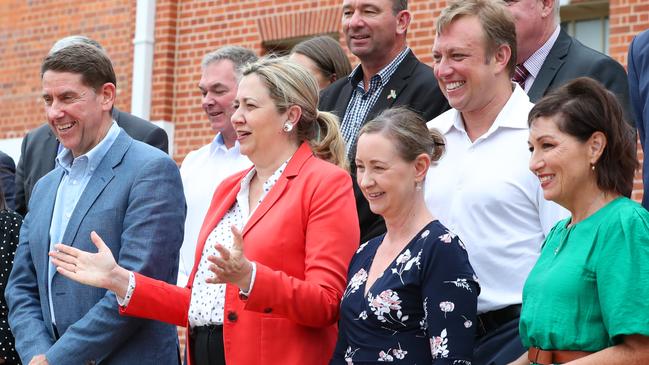
The government claims there will be a “staged” uplift of services to avoid a Redcliffe line-like “rail fail” debacle that saw a notorious timetable meltdown in 2016, maintaining commuters will not experience any drop in existing services due to the slow rollout of new trains.
Mr Bailey on Monday confirmed the Cross River Rail trains would start rolling off the assembly line and into the rail network from 2026.
This is a year after the $5.4bn mega project is due to begin operations in 2025.
Labor, during the 2020 election, announced it would be building 20 new trains in Maryborough – increasing it to 65 after further planning in their third term revealed the state needed more trains to deal with an increasing population.
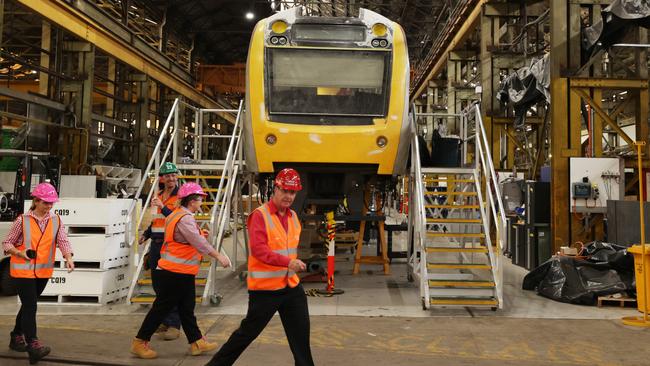
Mr Bailey, in a 2020 Queensland Labor release, said the 20 new trains were “needed to support more frequent services once Cross River Rail opens in 2025”.
Maryborough MP Bruce Saunders, now the Assistant Minister for Train Manufacturing, called the trains “Cross River Rail trains” at the time.
Mr Bailey on Monday said Cross River Rail would open “regardless of these trains” and that there would be “a staged uplift of services that will use these trains after 2025”.
It’s understood Queensland Rail has 145 three-car trains and 75 New Generation Rollingstock trains.
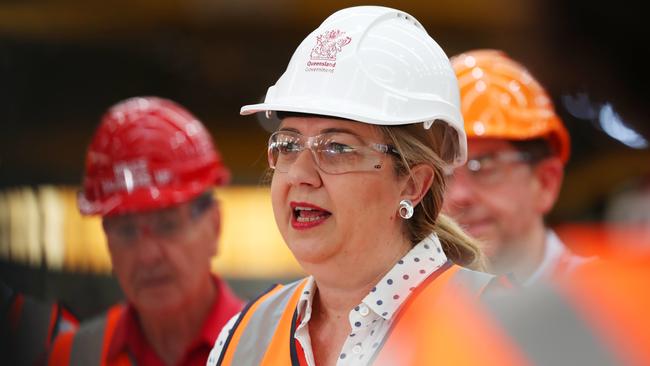
Opposition transport spokesman Steve Minnikin, slamming the one-year gap as a “total train wreck”, said it was not possible to “have more train services if you don’t have more trains”.
The state government, in previous media releases, had noted the “preferred supplier” for the $7.1bn project would be named in the second half of 2022.
Downer was named on February 6, with cabinet ticking off on the decision just hours earlier.
Downer is a client of lobby firm Anacta Strategies, whose co-founders Evan Moorhead and David Nelson are barred from working with the state government for the rest of this term.
Ms Palaszczuk said Downer was selected as the preferred supplier after an “independent” process which involved probity throughout, with the company being highlighted as the best option by the department by the time the proposal came to cabinet’s budget review committee.
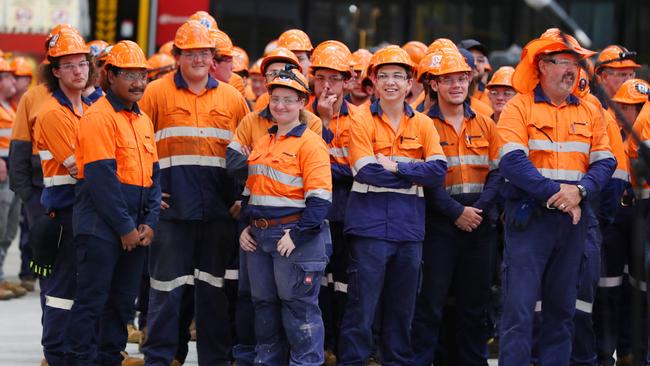
Mr Moorhead and Mr Nelson were barred, after an integrity firestorm lead to a report deeming “if an individual plays a substantive role in the election campaign of a prospective government, they should be banned from engaging in lobbying for the next term of office”.
Downer, under the contract, would deliver 65 six-car passenger trains, two training simulators, the purpose-built manufacturing facility at Torbanlea, a maintenance facility at Ormeau, and maintain the new fleet, simulator and the Ormeau infrastructure for between 15 and 35 years.




